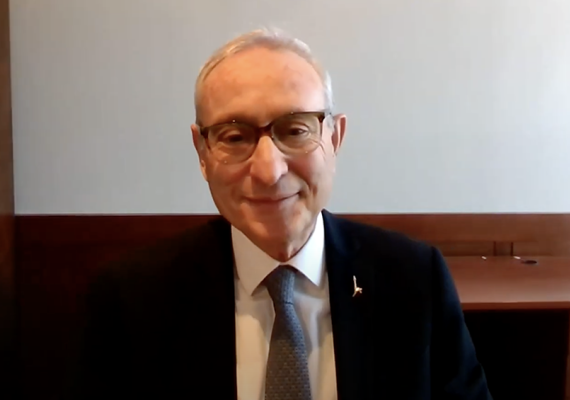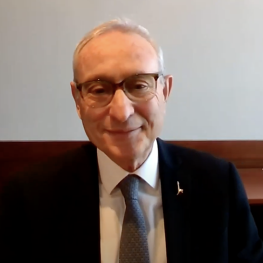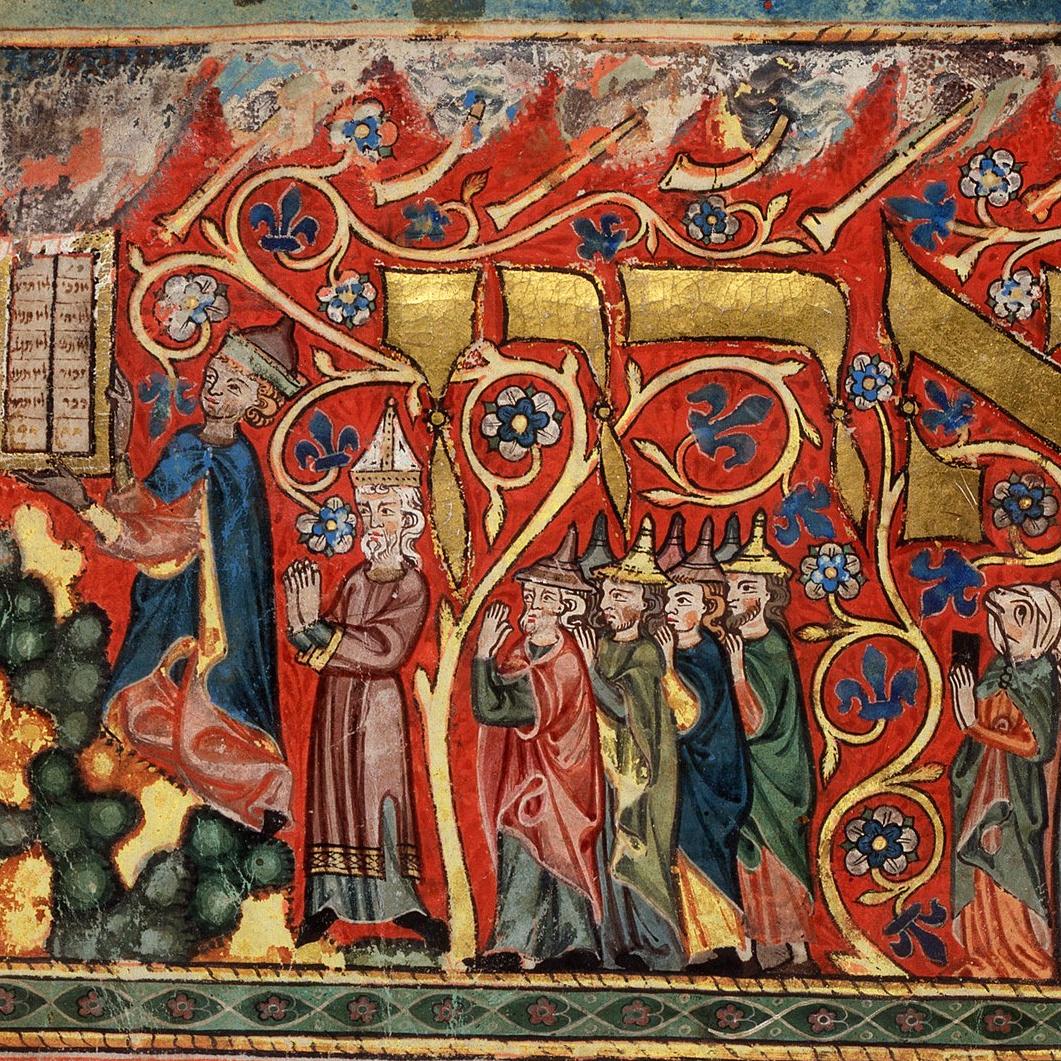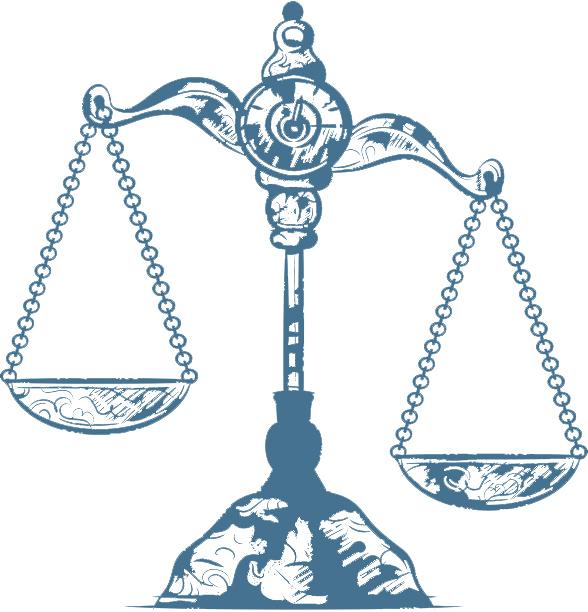The Israeli Declaration of Independence: Your Questions Answered
Following up with Professor Menahem Ben-Sasson, Chancellor of the Hebrew University of Jerusalem.

Earlier this year we had the pleasure of hosting Menahem Ben-Sasson, a Katz Center fellow and Chancellor of the Hebrew University of Jerusalem, in our public lecture series. He spoke about Israel’s Declaration of Independence, its relationship to the founding and current laws of the State of Israel, and efforts to create a constitution, to which Ben-Sasson himself has contributed. Audience members submitted so many excellent questions that there wasn’t enough time to answer them all on air. Prof. Ben-Sasson was kind enough to respond in writing.
Watch the video below to understand the background on these complex issues, and read on for additional thoughts from our distinguished speaker.
Is it correct that the Constituent Assembly was not an elected body? By what power basis could it make decisions?
The Constituent Assembly was elected as such and converted itself into a legislature. The Provisional Council was not elected and was not expected to be elected according to UN 181.
The US Declaration of Independence is not part of US law. However, President Lincoln viewed it as imparted into our constitution. How would you describe the status of the Israeli Declaration with respect to the basic law? Does the Declaration of Independence have any current legal standing in the Knesset and/or the courts?
Thank you for this point. Yes, a lot. The Knesset and Supreme Court refer to the Declaration through citations, using its wording as direction toward goals and deeds. Recently, for example, the Supreme Court protected new Jewish Nation-State Basic Law using the Declaration.
How is the Nation-State Law consistent with the Israeli Declaration of Independence? Will an Israeli constitution incorporate the Nation-State Law?
This issue was clarified in the Supreme Court decision in C. J. Hayut and others who referred to it in their decision (HCJ 5555/18 Hassoun v. The Knesset and 14 other petitions, July 8, 2021). For example, Hayut rejected the petitioners’ claim that the Basic Law’s omission of a commitment to equal treatment of all citizens inflicted severe harm to the democratic character of the State. She noted that the Basic Law constitutes only “one chapter of the future constitution.” The principle of maintaining equal social and political rights for all citizens, regardless of religion, race, or gender, was expressed in the State’s Declaration of Independence, and recognized by the Supreme Court as a fundamental constitutional principle that is intertwined with Israel’s basic legal concepts as enshrined in the Proclamation of Independence.
Paragraph 13 of the Declaration provides that the State of Israel would be based on freedom, justice, and peace as envisaged by the prophets of Israel; it will ensure complete equality of social and political rights to all its inhabitants irrespective of religion, race or sex. In 1994 the Knesset amended two basic laws, Human Dignity and Liberty and Freedom of Occupation, introducing (among other changes) a statement saying, “fundamental human rights in Israel will be honored (...) in the spirit of the principles included in the Declaration of the establishment of the State of Israel.”
It is too early to know whether elements of this Basic Law will be part of a proposed constitution but some parts of it are expected to be included, like name, anthem, flag etc. We drafted it profoundly in different emphasis.
Jewish and democratic—isn’t that a contradiction?
It depends how far we want to take the notion of being Jewish: if it is Jewish religious law, it contradicts; if it is only Jewish ceremonial expressions, it does not. The discussion is always about the in-between expressions. The Israeli Knesset as well as the Supreme Court pointed to various options for Jewish and democratic to easily dwell together.
You noted that many efforts have been made (so far, unsuccessfully) to ratify a constitution in Israel. What are the issues that can’t be agreed upon in the proposed constitutions? Would an Israeli Bill of Rights have been an easier solution?
Most parts went well in discussion. Among the topics of disagreement (some of which would also be difficult in a bill of rights) were: definition of equality, freedom from religion, several group rights, and overriding procedures.
Please repeat the years during which you and others worked on the latest draft of constitution. What are the current reasons for it not passing?
The years are 2006–2009. We had a tentative date to vote on it in first reading but PM Ehud Olmert resigned and we went for elections.
Did I hear Professor Ben-Sasson say that the original draft of the Proclamation was in English? And was it then translated into Hebrew?
Yes, many of the pages were drafted in English. You are invited to read the details in: Yoram Shachar, “Jefferson Goes East: The American Origins of the Israeli Declaration of Independence,” Theoretical Inquiries in Law 10.2 (2009).
Would you discuss the issue of the official language of Israel?
From the British time and in our draft constitution, Arabic was equal with Hebrew. The Jewish Nation-State Basic Law changed it in the spirit of this Basic Law.
What has been the role of the Israel Democracy Institute in proposing a framework for a permanent constitution? What is the IDI and how and why does it have a role?
The Israel Democracy Institute was heavily involved in the work of the recent constitutional committee, along with other Israeli NGOs. The IDI is a non-partisan “think-and-do tank” that is “dedicated to strengthening the foundations of Israeli democracy,” as it says on its website. Almost any legislative activity of the Knesset is open to the public by a few means; the main ones are that memorandum draft is published to the public in advance and that the committees’ sessions are open to the public. It is rather rare that individuals are involved except for professionals who are invited to the hearing. NGOs, however, were created for this purpose. They have the time, manpower, expertise, and experience, and they are heavily involved in the committees’ work.
Did you say that a constitution was abolished to create the State of Israel? Was there a constitution or some other kind of fundamental law established during the British mandate?
No, there was not—a fact that fits the British non-constitutional concept. As a point of clarification, the automated subtitles incorrectly rendered “establishment” as “abolishment” when I was discussing the establishment of a constitution as one of the conditions for the acceptance of each new state (Israel and Palestine) to the United Nations.



